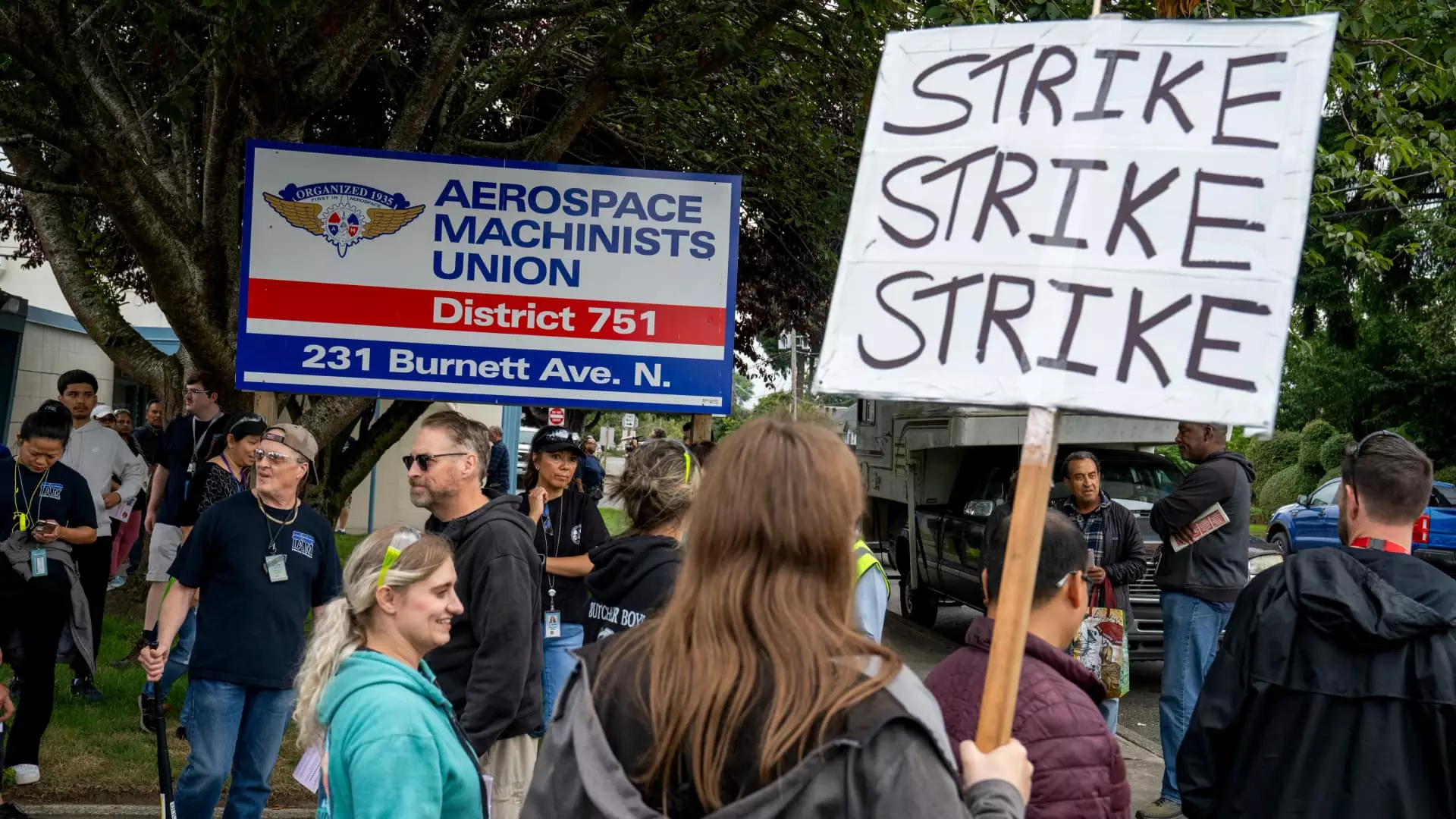The impending strike of over 30,000 Boeing workers marks a critical juncture for the aerospace giant, which is wrestling with not only production challenges but also a tarnished reputation stemming from past safety issues. This potentially disruptive work stoppage follows the rejection of a recent labor contract—an outcome indicative of deep-seated worker dissatisfaction and raises significant concerns about Boeing’s future. With an overwhelming 94.6% of employees voting against the tentative agreement put forth by the company and the International Association of Machinists and Aerospace Workers (IAM), the ramifications of this strike are poised to reverberate throughout the entire aviation sector.
At the core of the workers’ decision lies a range of grievances that have culminated in a unified demand for better contract terms. The striking employees have alleged a number of unfair labor practices, including “discriminatory conduct,” coercive questioning, and unlawful surveillance. IAM District 751 President Jon Holden has characterized the strike as an “unfair labor practice strike,” emphasizing the need for Boeing to engage in meaningful negotiation. It is evident that the employees feel their voices have been marginalized, exacerbating an already tense labor-management relationship.
The rejected contract offered a 25% wage increase alongside improvements in healthcare and retirement benefits, yet workers have voiced discontent, arguing that these terms fall short in addressing the realities of rising living costs. This disconnect between management’s proposals and workers’ needs highlights a significant gap—one that the company must bridge if it hopes to retain its workforce and restore stability.
New Boeing CEO Kelly Ortberg, who has only recently taken the helm, faces the daunting task of managing a crisis at a time when the company is already struggling to ramp up production and navigate substantial debt challenges. In a last-minute appeal to workers, Ortberg stressed the potential jeopardy a strike could pose to Boeing’s recovery trajectory. However, his call to action was met with staunch resistance, further indicating a breakdown in communication between executive leadership and labor.
Furthermore, the failure of this tentative agreement, which was positioned as the “best contract” the company has ever presented, signifies a profound miscalculation in understanding the workforce’s evolving expectations. In a landscape where labor power has started to gain momentum, particularly in industries experiencing supply chain disruptions and labor shortages, Boeing’s management may need to reassess its strategy and approach to engage with its workforce effectively.
Financial Fallout and Industry Implications
The strike’s length will dictate its financial repercussions, with early estimates suggesting a 30-day work stoppage could result in a staggering $1.5 billion cash deficit for Boeing. Financial analysts have underscored that such a disruption may not only negatively affect Boeing but also destabilize its supply chains and supplier relationships—elements critical to its operational continuity. The financial stakes amplify the urgency for a resolution.
Moreover, the proposed agreement aimed to secure the next commercial jet’s production in the Seattle area in a bid to restore trust, especially following the relocation of the 787 Dreamliner manufacturing to a non-union site in South Carolina. However, the zeal for community investment has fallen on deaf ears amidst long-standing issues and the economic uncertainty contributed by inflation and lagging output.
As millions hang in the balance, the roadmap for Boeing must pave a way toward better labor relations while addressing broader industry challenges. A protracted strike could not only hinder Boeing’s recovery but also embolden other labor movements across various sectors. Whether Boeing can shift its approach to labor negotiations and restore goodwill among its workers will be the litmus test of its long-term viability and success in an ever-evolving industry landscape.
The workers’ strike at Boeing embodies a critical clash of interests, one that calls for astute negotiation and a willingness to innovate in labor relations. As the aerospace company seeks to not only recover from past busts but to aim for future triumphs, the resolution of this dilemma becomes more than just an internal matter; it reflects the larger dynamics of labor power in modern economic discourse.

